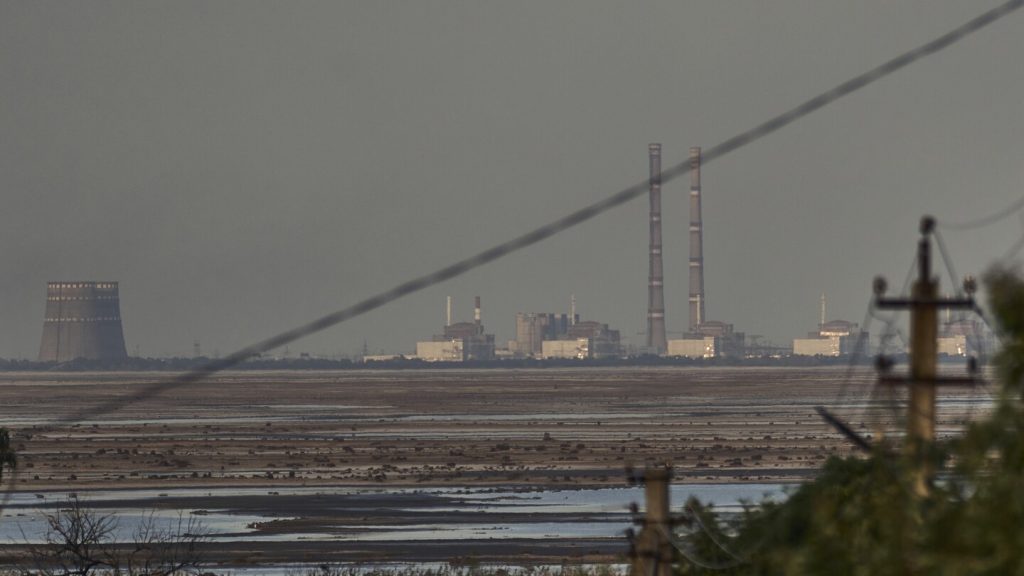The head of the U.N.’s atomic watchdog agency, Rafael Mariano Grossi, condemned a Ukrainian drone strike on one of the six nuclear reactors at the Russian-controlled Zaporizhzhia Nuclear Power Plant in Ukraine. Grossi stated that such attacks significantly increase the risk of a major nuclear accident. The plant was attacked by Ukrainian military drones, with at least three direct hits against the main reactor containment structures reported. This incident marked the first attack of its kind since November 2022. Despite the strikes, there was no critical damage or casualties reported at the plant, and radiation levels were normal after the attack.
The International Atomic Energy Agency (IAEA) confirmed that experts had been informed of the drone strike at the plant. The IAEA noted that the physical impact of the drone attacks, including at one of the six reactors, was consistent with their observations. While damage at unit 6 did not compromise nuclear safety, the incident was deemed serious and had the potential to undermine the integrity of the reactor’s containment system. The Zaporizhzhia Nuclear Power Plant has been caught in the crossfire since Moscow sent troops into Ukraine in 2022 and seized the facility. The IAEA has expressed concerns about the plant, Europe’s largest, due to fears of a potential nuclear catastrophe.
In addition to the attack on the nuclear power plant, reports surfaced of casualties and damage in other areas of Ukraine as a result of ongoing hostilities. Three people were killed when their house was hit by a Russian projectile in the town of Huliaipole in Ukraine’s Zaporizhzhia region. Meanwhile, two people were wounded in another shelling of Huliaipole. Separately, three people were injured in Russian shelling in the Kharkiv region. On the Russian side, a girl died and four others were wounded when the debris of a downed Ukrainian drone fell on a car carrying a family of six people in Russia’s Belgorod region bordering Ukraine.
The power plant’s six reactors have been shut down for months, but there is still a need for power and qualified staff to operate crucial cooling systems and safety features. The ongoing conflict has impacted the operation and safety of the plant, with both Ukraine and Russia accusing each other of attacking the facility. Despite the challenges, authorities at the plant have stated that the recent drone attacks did not compromise nuclear safety, but it remains a serious incident with the potential to undermine the reactor’s containment system. The situation at the Zaporizhzhia Nuclear Power Plant continues to be closely monitored by international organizations like the IAEA.
The recent drone strike on the Zaporizhzhia Nuclear Power Plant highlights the growing risks associated with the conflict in Ukraine. The use of military drones in attacks on critical infrastructure such as nuclear facilities raises concerns about the potential for a major nuclear accident. The IAEA and other international bodies continue to call for restraint and adherence to established principles to prevent such incidents. The safety and security of nuclear power plants in conflict zones remain a top priority, and efforts are being made to ensure that these facilities are protected from further attacks. The situation in Ukraine remains volatile, with the potential for more violence and destruction if the conflict escalates further.
The international community has urged all parties involved in the conflict to prioritize the safety of civilians and critical infrastructure, including nuclear power plants. The recent incidents in Ukraine serve as a stark reminder of the devastating impact of war on communities and vital facilities. As efforts to resolve the conflict continue, there is a need for concerted action to prevent further escalation and protect civilian lives. The need for a peaceful resolution to the conflict in Ukraine is paramount to prevent further loss of life and damage to infrastructure. The safety of nuclear facilities like the Zaporizhzhia Nuclear Power Plant must be ensured to prevent any potential nuclear catastrophe in the region.


